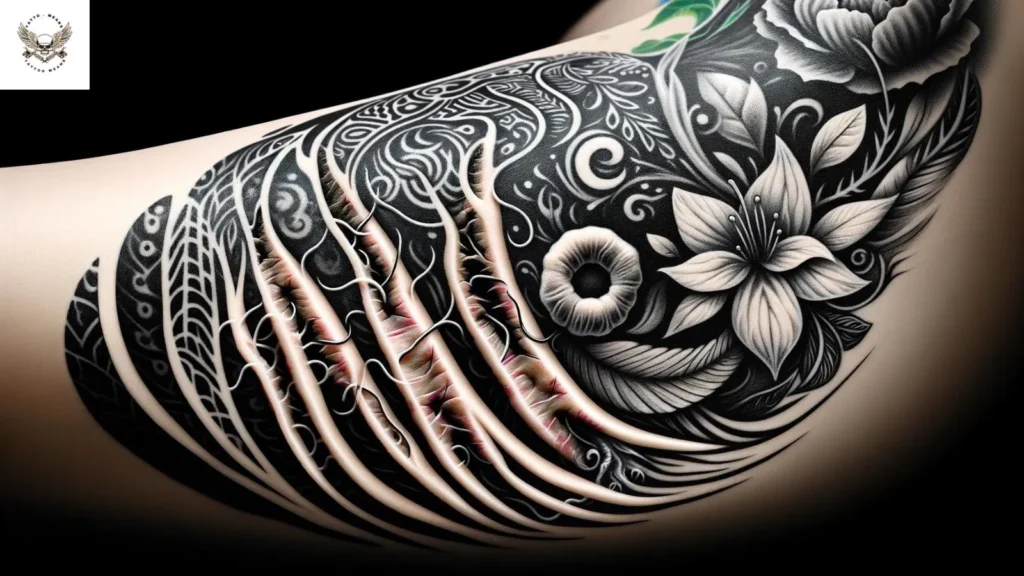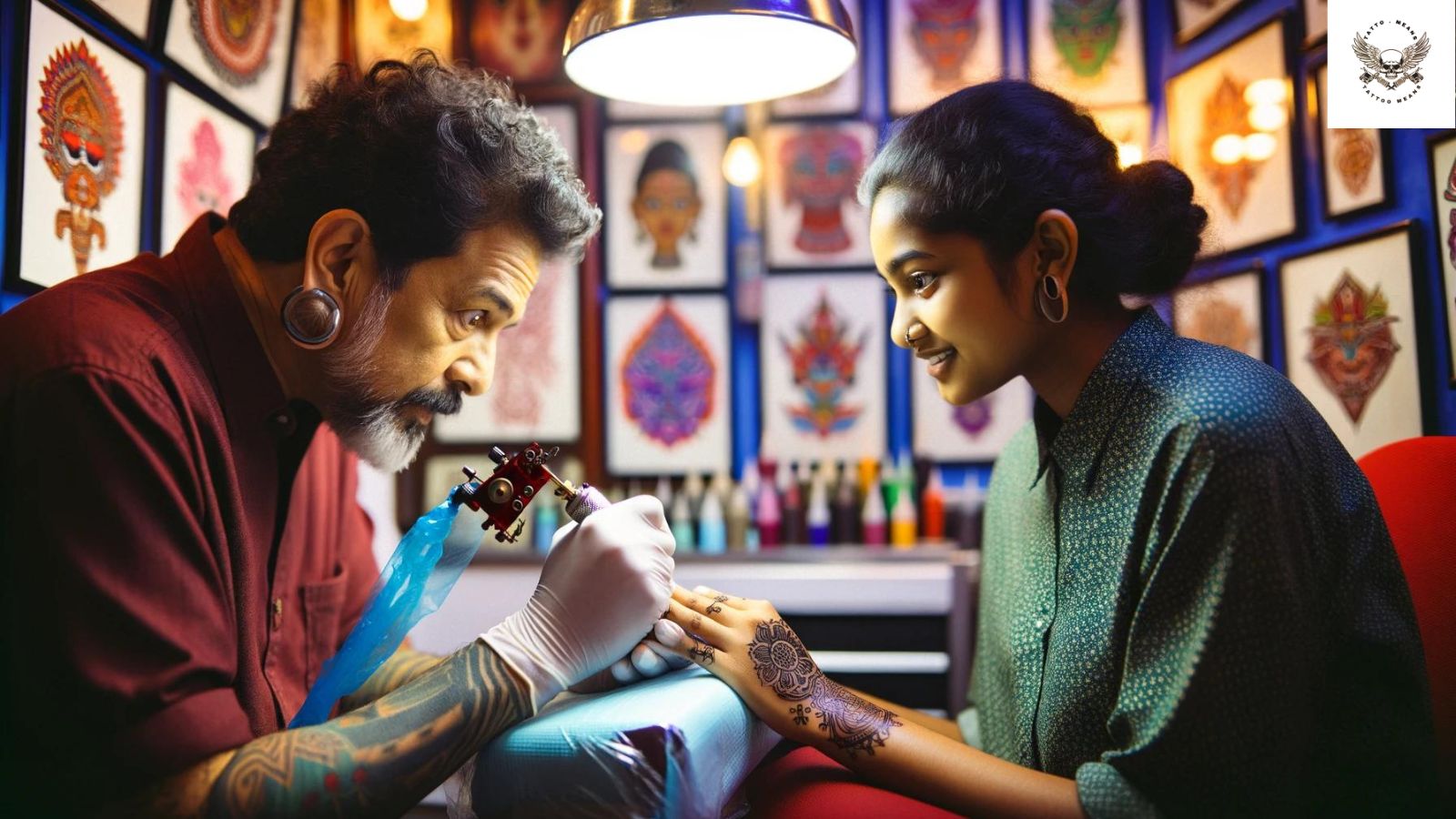
Table of Contents
Pros And Cons of Tattooing Over Scars And Birthmarks
Tattoos on Scar
Pros:
Enhanced Confidence: Boost self-esteem by concealing or minimizing the appearance of scars resulting from accidents, surgeries, or other traumatic experiences.
Artistic Transformation: Skilled tattoo artists can turn scars into captivating works of art, transforming what may have been seen as imperfections into unique and visually striking designs that tell a personal story.
Scar Minimization: Through strategic shading and color use, tattoos can create an illusion of depth and texture that diverts attention from the scar. This optical illusion can make raised scars appear flatter and less prominent.
Divert focus from scar: Incorporating dynamic designs around or over the scar can shift the focus to the artwork, making the scar a secondary aspect of the skin’s story.
These techniques do not physically alter the scar but offer a visual transformation that can significantly enhance one’s perception of one’s skin.
Cons:
Painful Procedure: Tattooing over scar tissue can be significantly more painful than tattooing on regular skin due to altered nerve endings and reduced elasticity. This discomfort may be especially challenging for individuals undergoing the process for the first time.
Risk of Complications: Scar tissue is less predictable than normal skin and may react unpredictably to the tattooing process. There’s a risk of skin irritation, inflammation, or even reopening of the scar if not properly handled, particularly with hypertrophic or keloid scars.
Scar Discoloration and Ink Retention: Scar tissue behaves differently under the tattoo needle. The ink may not hold as effectively in scarred areas, leading to potential color distortion or unevenness in the tattoo’s appearance.
This doesn’t mean a quality tattoo can’t be achieved; it merely suggests the need for an experienced artist proficient in handling the complexities of scarred skin.
Limited Designs: Certain types of scars, such as keloids, which are raised and can grow over time, limit the tattoo designs you can consider. It’s essential to work closely with a professional tattoo artist who can advise on the best designs that suit your skin and aesthetically incorporate or complement the scar.
You can read also When Will a Finger Tattoo Start to Blur and Fade?
Tattoos on Birthmarks:
Pros:
Customized Beauty: Tattoos enhance the natural beauty of birthmarks, turning them into focal points of artistry. By integrating tattoo designs with the unique shapes and colors of birthmarks, individuals can celebrate their individuality in a visually captivating manner.
Creative Expression: With endless design possibilities, individuals can express their personalities and passions through tattoo artistry, turning their birthmarks into personalized masterpieces that reflect their identity.
Birthmark Disguisement: For those seeking to disguise unwanted birthmarks, tattoos offer a dual approach. One method involves blending the birthmark into the surrounding skin tone with pigment that closely matches the person’s natural colour.
Alternatively, birthmarks can be cleverly incorporated into larger, intricate designs. This not only diverts attention from the birthmark but also integrates it into a piece of art representing something meaningful to the individual. The possibilities are endless, from whimsical scenes to geometric patterns, offering a creative solution that celebrates individuality.
Cons:
Health Considerations: Prior to tattooing over birthmarks, Consulting with healthcare experts is crucial to ensure the tattooing process is safe and suitable for your health situation. There are no underlying health risks. Certain birthmarks, particularly those with irregular shapes or changes in colour, may warrant closer examination to rule out potential health concerns, such as melanoma.
Color Challenges: Achieving the desired tattoo color over birthmarks can be complex, especially with variations in pigmentation. Darker birthmarks may pose challenges in obtaining vibrant colors, requiring careful consideration and consultation with experienced tattoo artists to achieve the desired aesthetic outcome.
Pre-Existing Skin Conditions: For individuals with certain skin conditions, especially those that affect healing or skin texture, tattooing over scars or birthmarks might not be advisable. Conditions like eczema, psoriasis, or dermatitis could affect the healing process of a tattoo and lead to complications. Consulting with a dermatologist before making a decision is wise.






